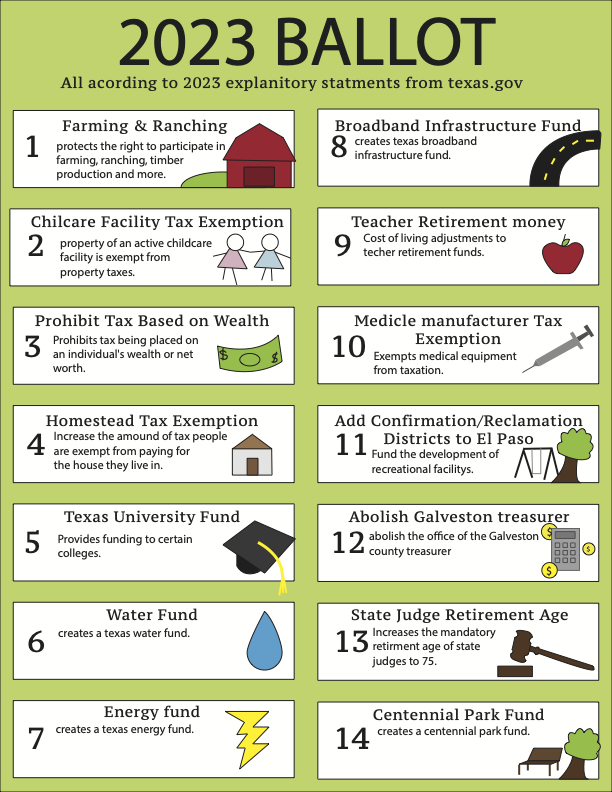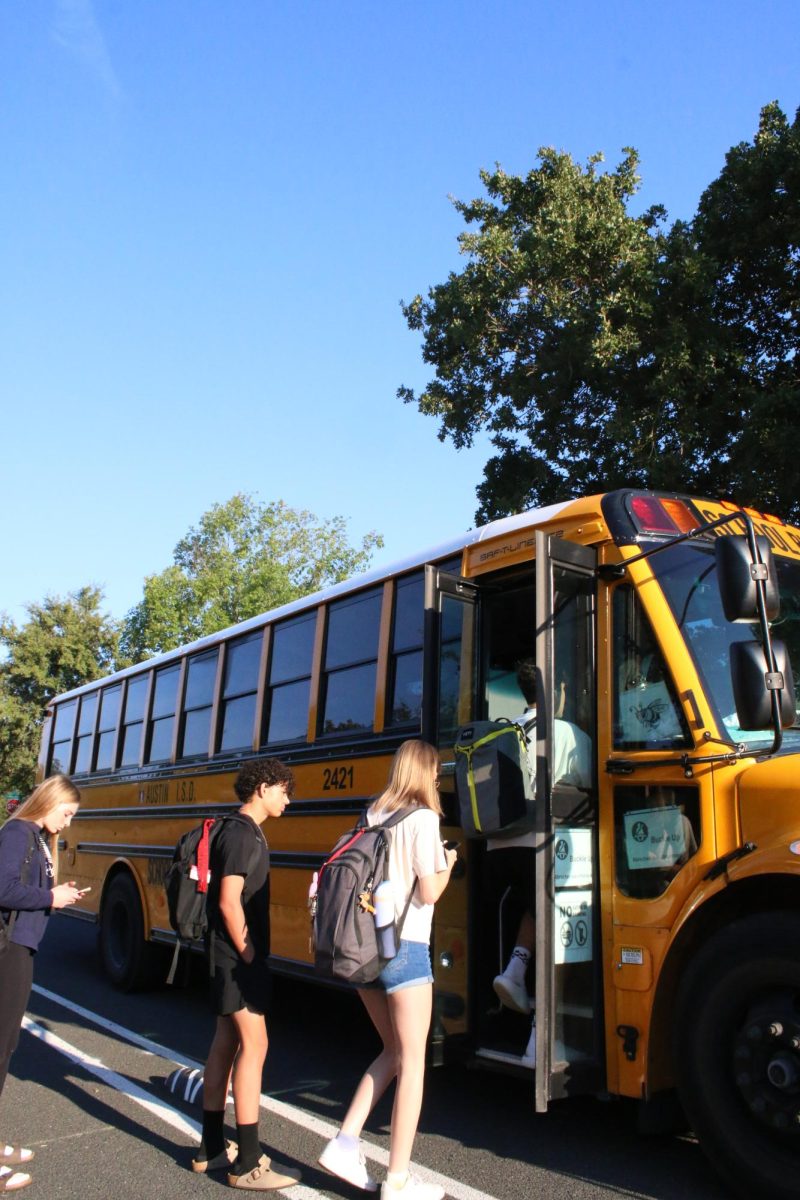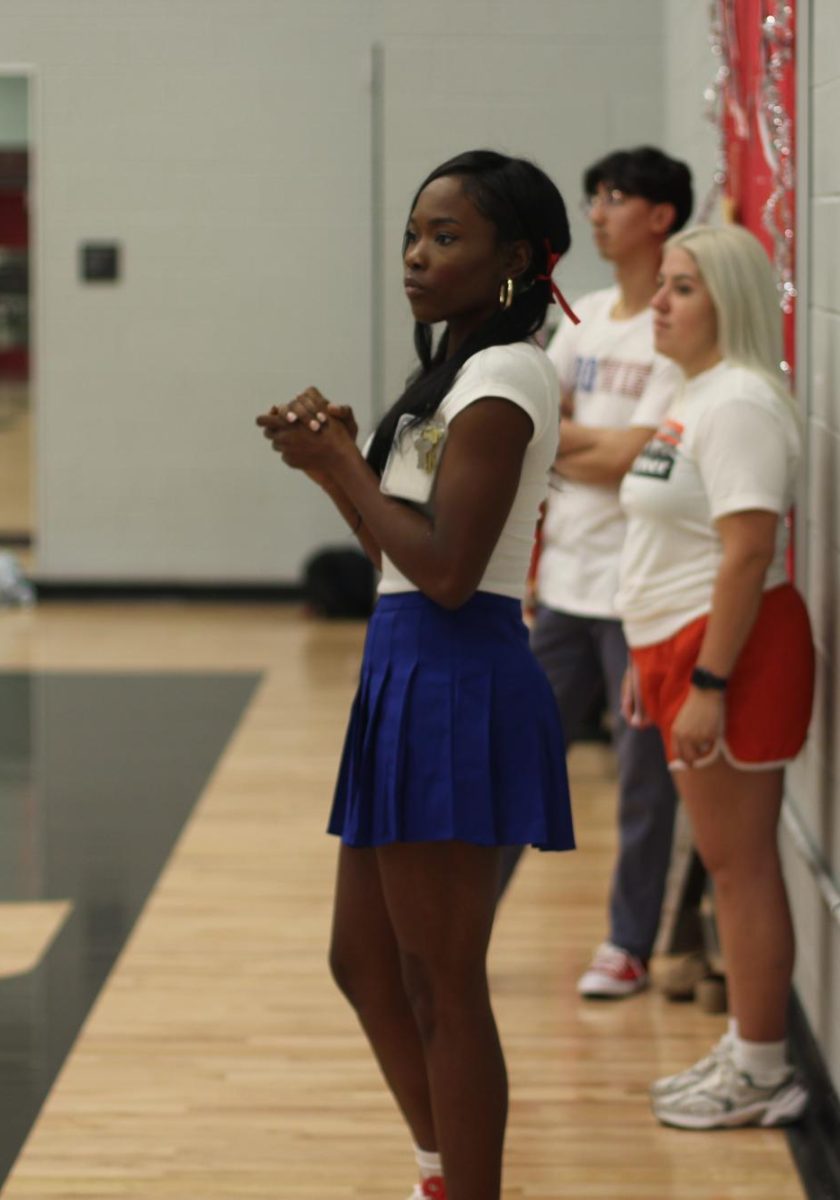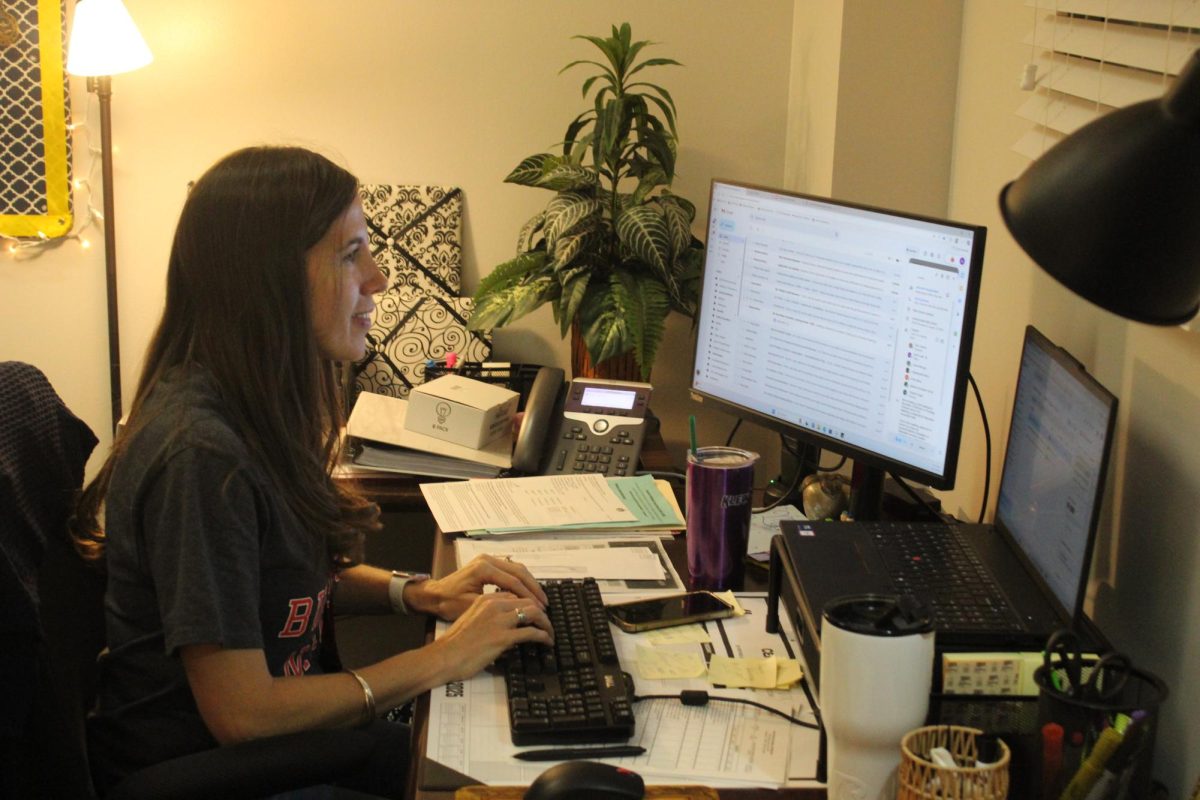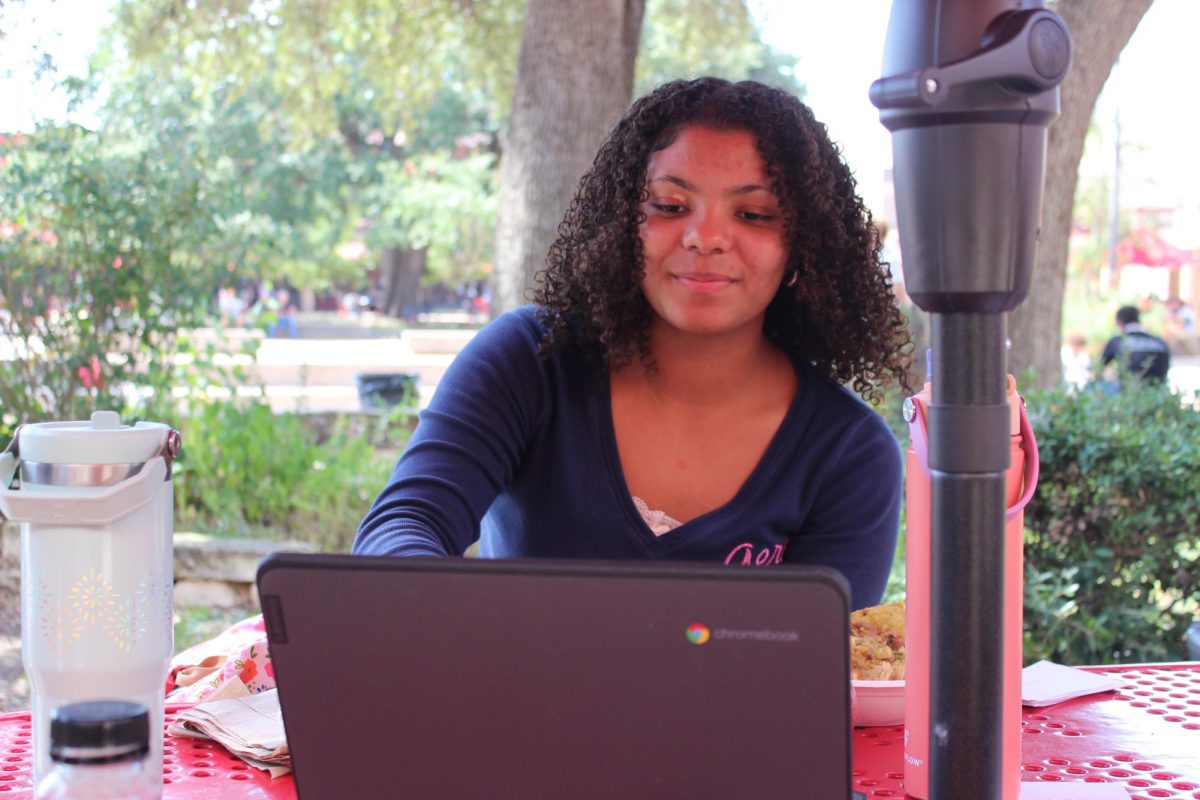Long lines of people start to form outside the Bowie High School front office. Dedicated citizens are voting in the 2023 Central Texas election, deciding whether to approve or reject 14 proposed amendments to the Texas constitution.
Voting took place on November 7, and results are out. Texans approved all but one of the 14 propositions, voting to reject proposition 13 to change the retirement age for state judges.
“I thought the proposition about raising the age of retirement for judges was pretty important,” senior Kevin Howard said. “I don’t believe we need older people to be in such a position.”
While Proposition 13 got a lot of attention as the only rejected proposition, in the education field there was a lot of attention on Proposition nine.
“Proposition nine was raising how much retired teachers get paid,” government teacher Dalton Pool said. “That was something that was definitely important for me as a teacher and that was one proposition that got a lot of attention in education.”
The environment people live in, as well as their world experiences, can impact their views on voting and which propositions they value the most.
“There’s propositions that I personally thought were more important to me, and there were some that were more important to the great state of Texas,” senior Diego Flores said. “The power grid proposition, that’s important to almost everyone, not just me. However, the proposition about preschools in Texas would help out my mom’s preschool, so that’s more important to me.”
While students all have their own views on voting, students and teachers alike understand that starting to vote at a young age is vital for the United States.
“I think it’s incredibly important for young people to get more involved in voting,” Howard said. “Currently, our politics are too dominated by older people that are out of touch with what the nation really needs.”
Voting is a vital part of the US political system and allows citizens of legal age to participate in making decisions for the entire country. Having polling in convenient places can help incentivize citizens to vote.
“Having polling booths on school campuses has a great benefit,” Pool said. “In the US, we don’t make voting super easy, which is probably why voter turnout is pretty low. Presidential election turnout is only about 60%, this was just local elections, so probably around 20% to 40% of people in the local area voted. When you put a polling location in a convenient spot for teachers and students that’s going to help them vote, so I think it’s really important to see more of it in the future.”
According to Pool, before voting it is important to research what will be on the ballot, especially when voting in local elections where there is no political party to impact your decision.
“I would tell all students they should definitely vote, and before they go to the polling location they should educate themselves,” Pool said. “I always do a little research, just 30 minutes, oftentimes on my way to the location. I do research just to refresh myself on some of the less known propositions, opponents, or races. Well known races like for president, governor, or senator, you’re probably pretty well versed in, because paying attention is a little easier if there’s a party involved. When you get to local elections you don’t always have a party next to the name when you get to propositions or amendments. If you don’t know which party supports what, you can’t just rely on your political leanings when voting.”
Once getting educated, it is important for every eligible person to go vote, so that results are as accurate to what the population wants as they can possibly be.
“I teach AP government and anytime I know it’s a seniors birthday I always make a point to pass out a voter registration card, so they’re ready to vote,” Pool said. “The more people that vote the better it is for our country because we get poor election results when we have low turnout. I just hope that everybody votes, and having a polling location on campus definitely helps get more people to do so.”



